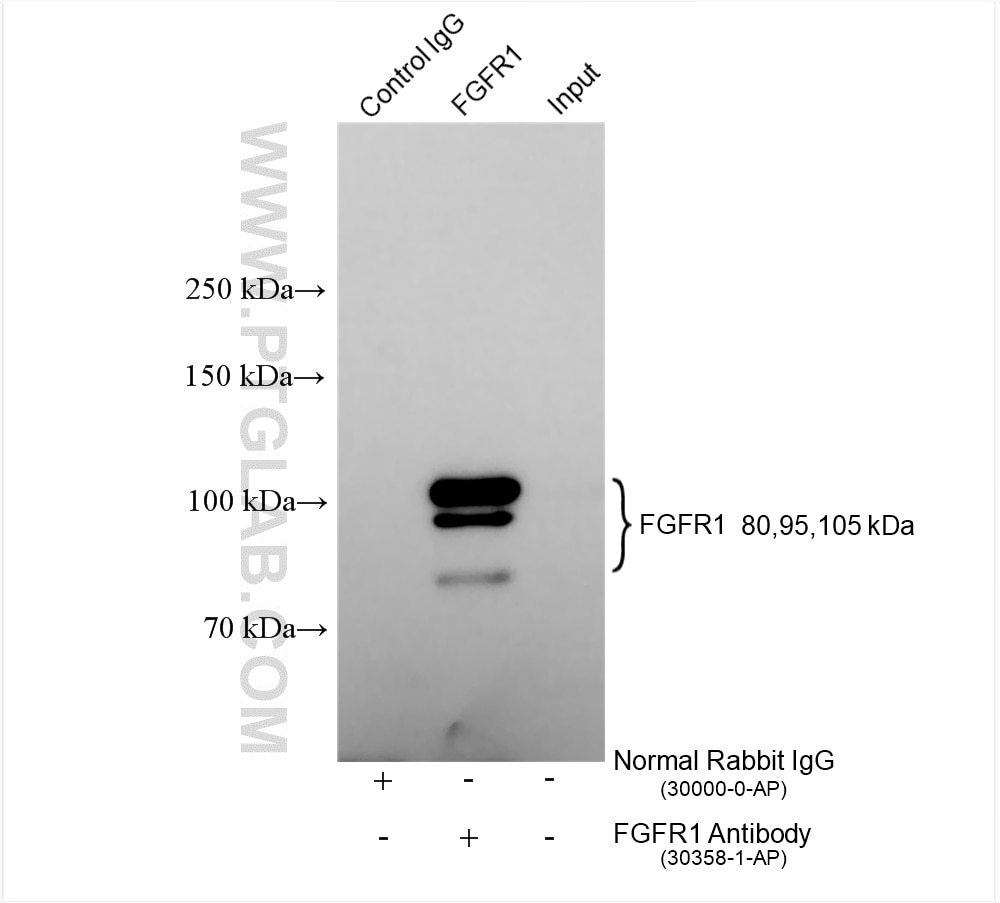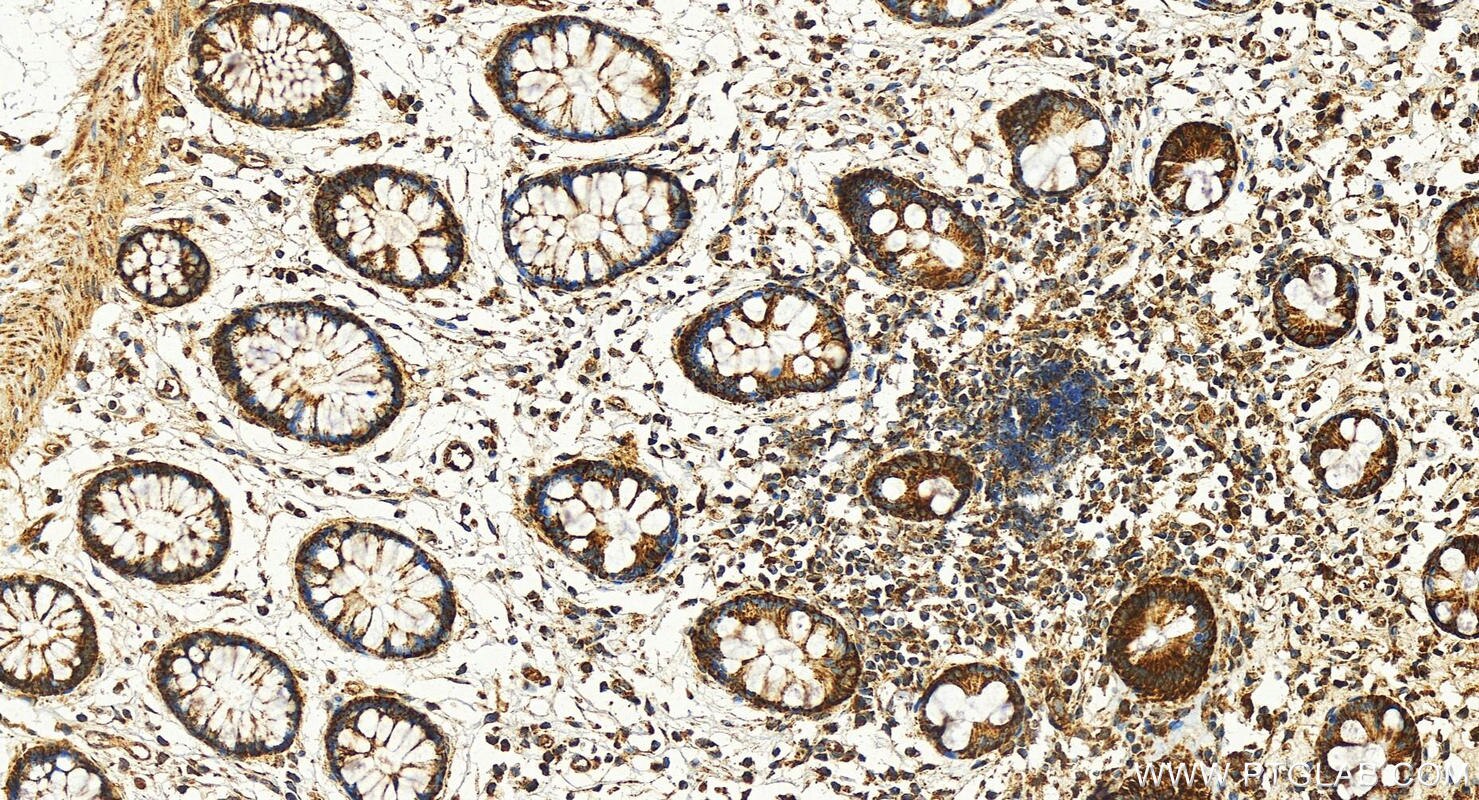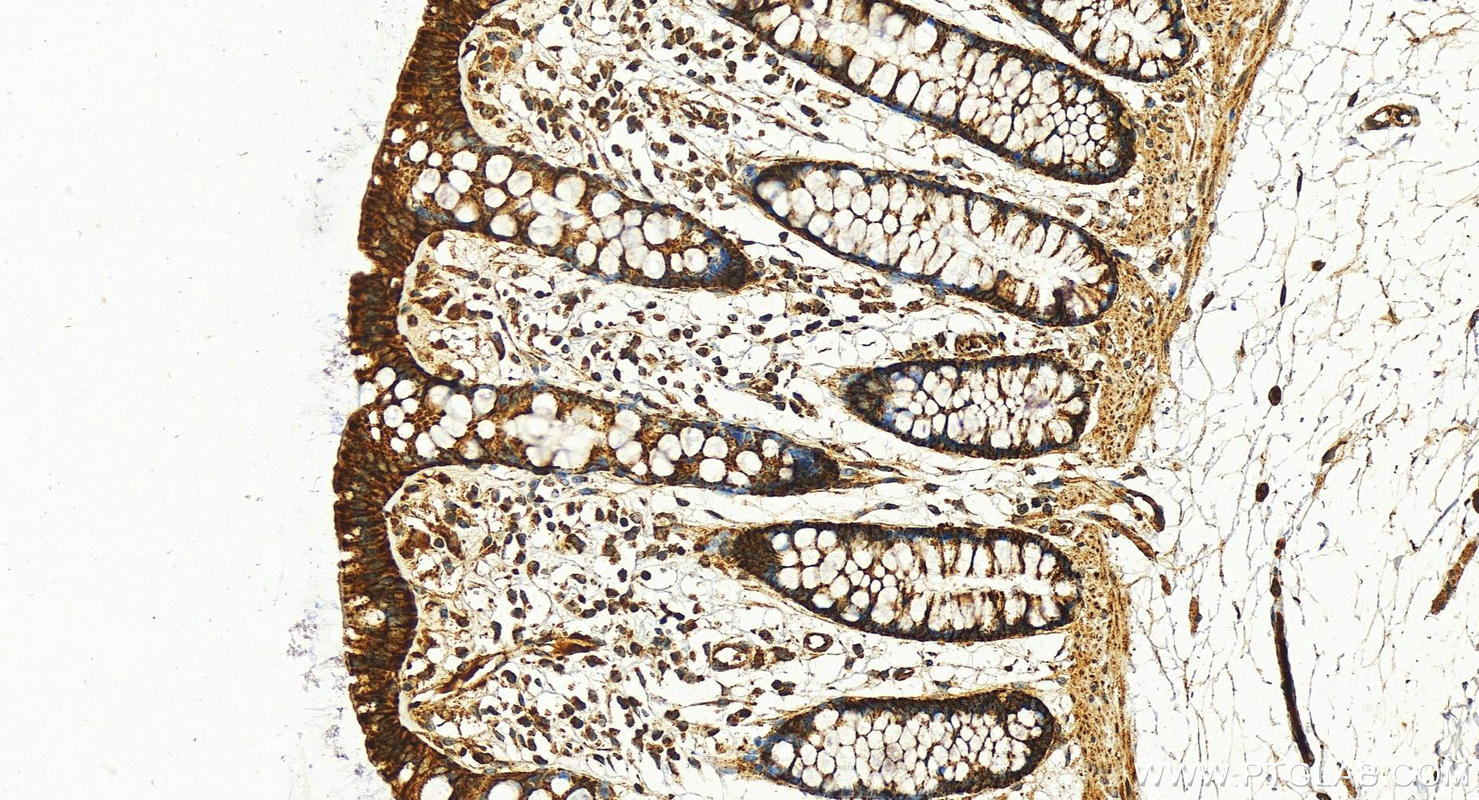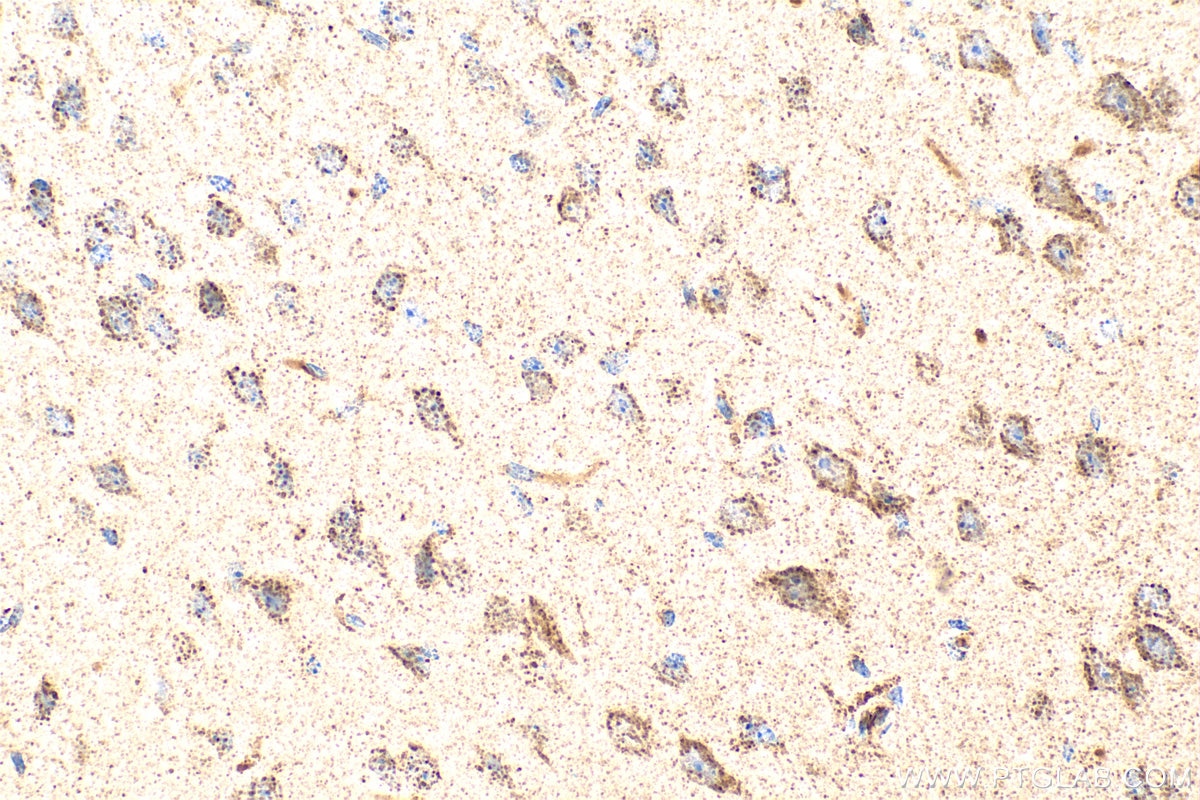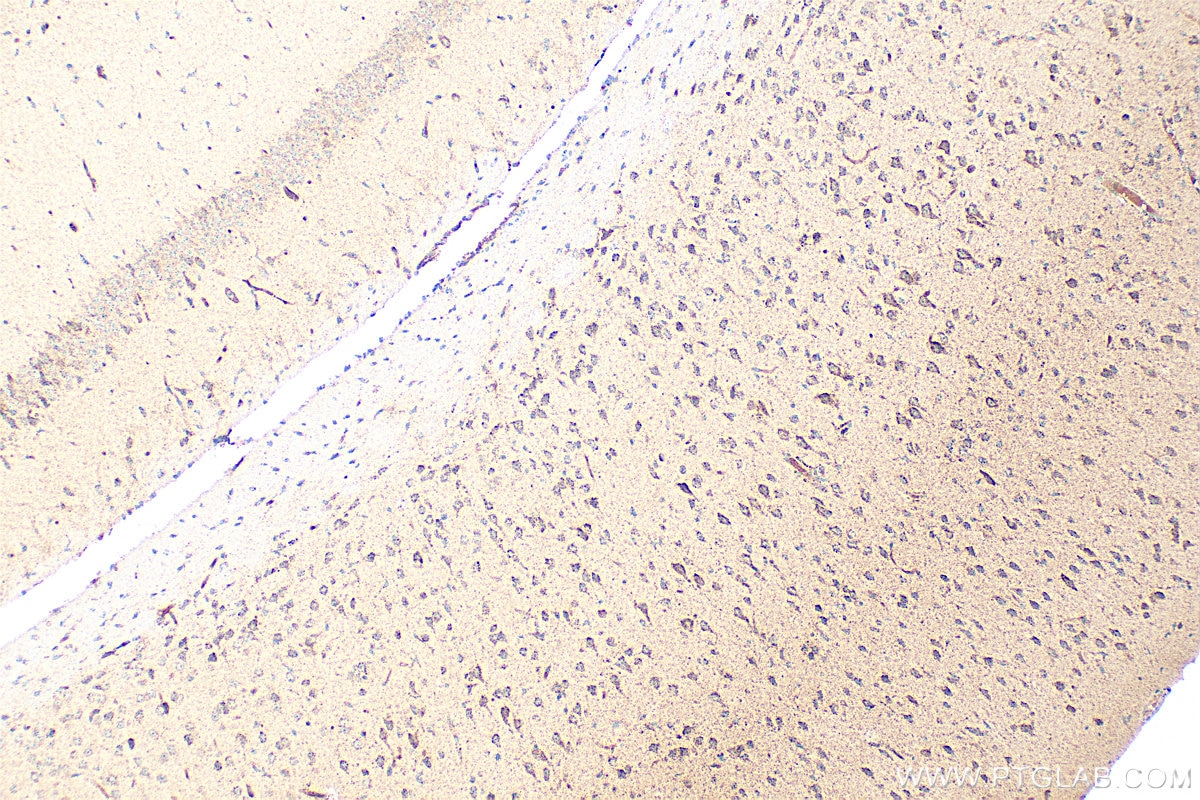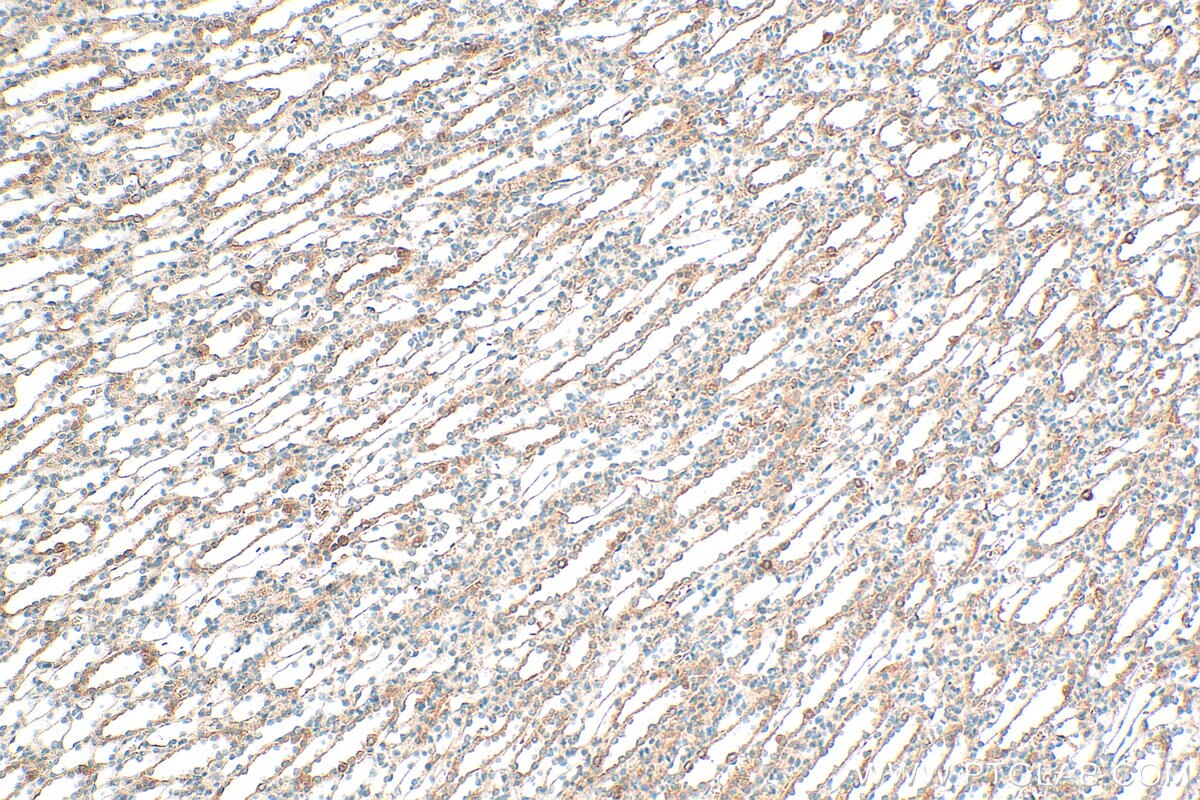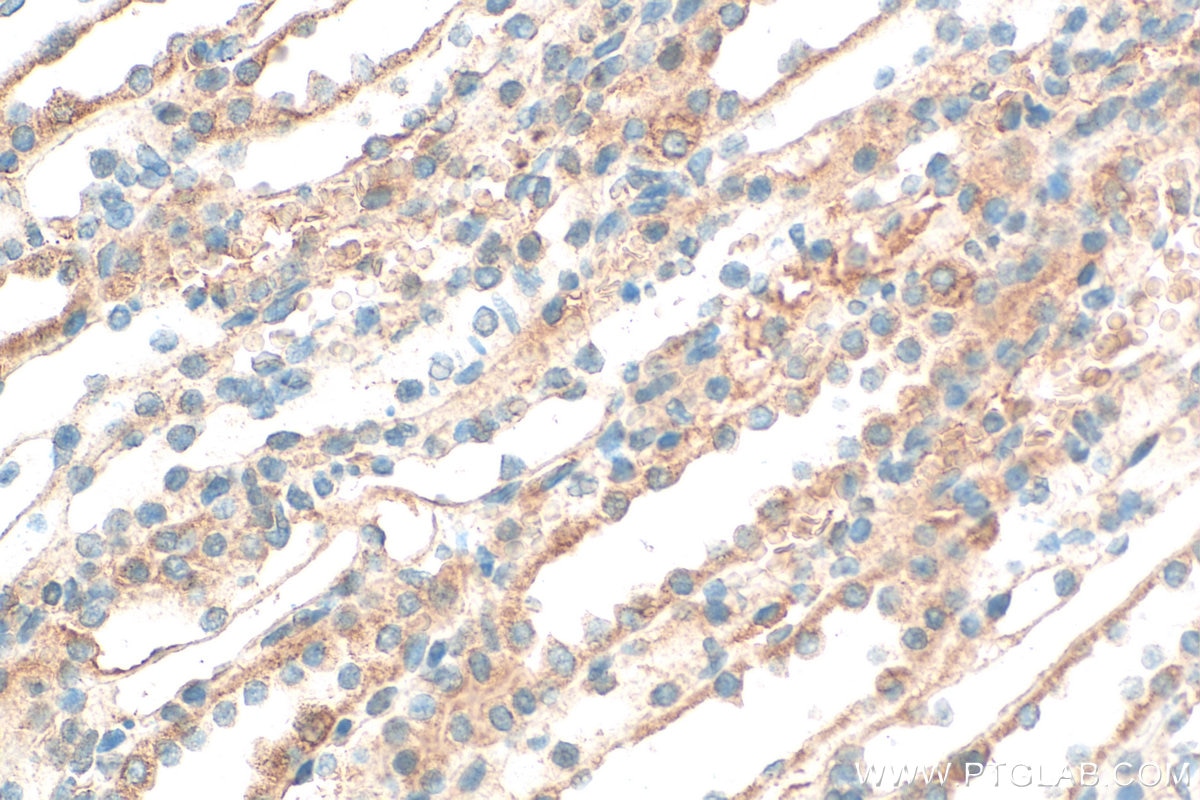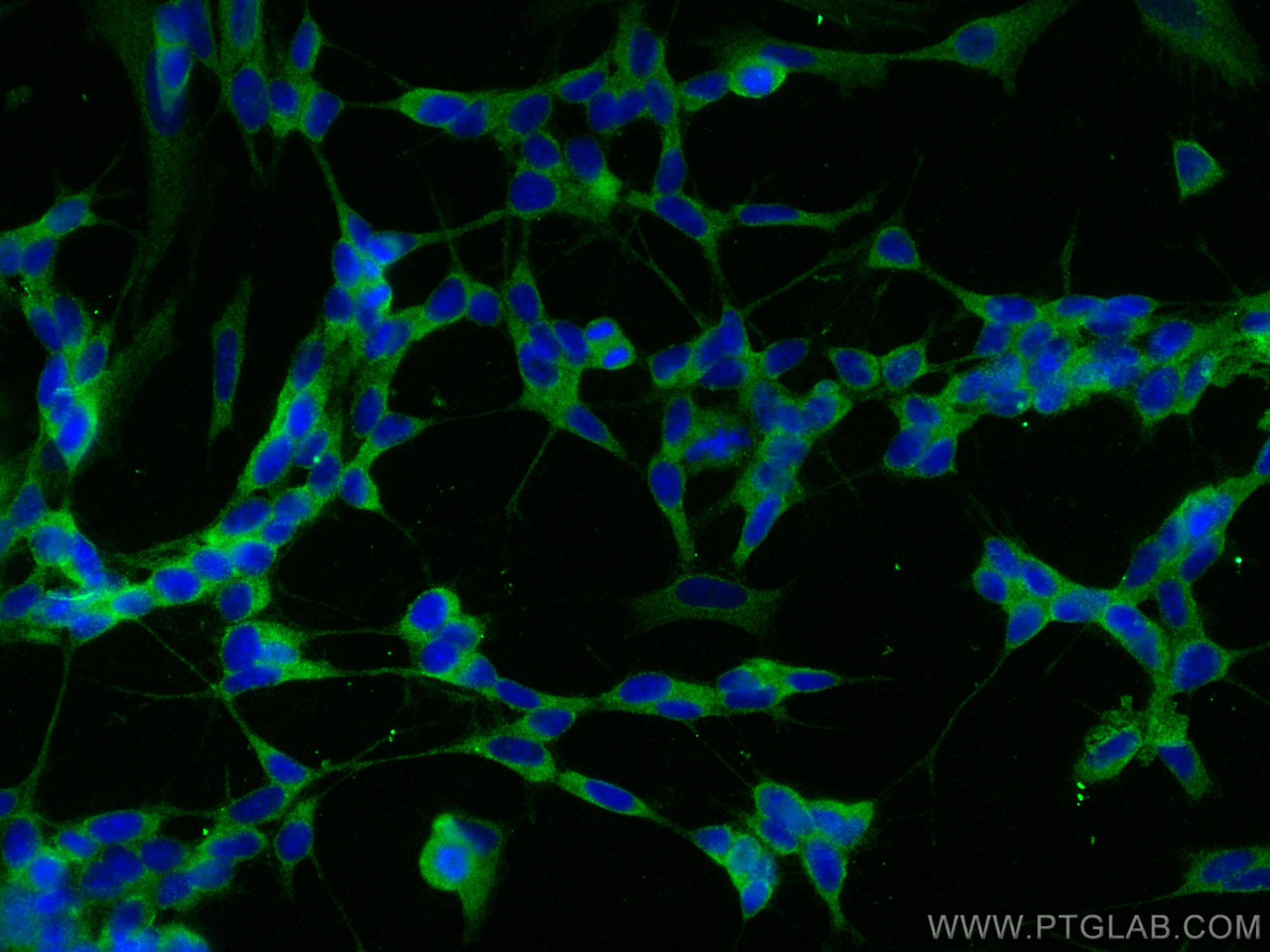FGFR1 Polyklonaler Antikörper
FGFR1 Polyklonal Antikörper für IHC, IF/ICC, IP, ELISA
Wirt / Isotyp
Kaninchen / IgG
Getestete Reaktivität
human, Maus, Ratte
Anwendung
IHC, IF/ICC, IP, ELISA
Konjugation
Unkonjugiert
Kat-Nr. : 30358-1-AP
Synonyme
Geprüfte Anwendungen
| Erfolgreiche IP | SH-SY5Y-Zellen |
| Erfolgreiche Detektion in IHC | humanes Kolongewebe, Maushirngewebe, Rattennierengewebe Hinweis: Antigendemaskierung mit TE-Puffer pH 9,0 empfohlen. (*) Wahlweise kann die Antigendemaskierung auch mit Citratpuffer pH 6,0 erfolgen. |
| Erfolgreiche Detektion in IF/ICC | SH-SY5Y-Zellen |
Empfohlene Verdünnung
| Anwendung | Verdünnung |
|---|---|
| Immunpräzipitation (IP) | IP : 0.5-4.0 ug for 1.0-3.0 mg of total protein lysate |
| Immunhistochemie (IHC) | IHC : 1:50-1:500 |
| Immunfluoreszenz (IF)/ICC | IF/ICC : 1:200-1:800 |
| It is recommended that this reagent should be titrated in each testing system to obtain optimal results. | |
| Sample-dependent, check data in validation data gallery | |
Produktinformation
30358-1-AP bindet in IHC, IF/ICC, IP, ELISA FGFR1 und zeigt Reaktivität mit human, Maus, Ratten
| Getestete Reaktivität | human, Maus, Ratte |
| Wirt / Isotyp | Kaninchen / IgG |
| Klonalität | Polyklonal |
| Typ | Antikörper |
| Immunogen | Peptid |
| Vollständiger Name | fibroblast growth factor receptor 1 |
| Berechnetes Molekulargewicht | 820 aa, 91 kDa |
| Beobachtetes Molekulargewicht | 80 kDa, 95 kDa, 105 kDa |
| GenBank-Zugangsnummer | BC018128 |
| Gene symbol | FGFR1 |
| Gene ID (NCBI) | 2260 |
| Konjugation | Unkonjugiert |
| Form | Liquid |
| Reinigungsmethode | Antigen-Affinitätsreinigung |
| Lagerungspuffer | PBS with 0.02% sodium azide and 50% glycerol |
| Lagerungsbedingungen | Bei -20°C lagern. Nach dem Versand ein Jahr lang stabil Aliquotieren ist bei -20oC Lagerung nicht notwendig. 20ul Größen enthalten 0,1% BSA. |
Hintergrundinformationen
Fibroblast growth factor receptor 1 (FGFR1) is a tyrosine-protein kinase that acts as a cell-surface receptor for fibroblast growth factors. FGFR1 has been implicated in diverse biological processes including embryonic development, cell proliferation, differentiation, migration, and tumorigenesis. Mutations in the FGFR1 gene have been associated with Pfeiffer syndrome, Jackson-Weiss syndrome, Antley-Bixler syndrome, osteoglophonic dysplasia, squamous cell lung cancer, and autosomal dominant Kallmann syndrome. Alternatively spliced variants that encode different protein isoforms have been described.
Protokolle
| PRODUKTSPEZIFISCHE PROTOKOLLE | |
|---|---|
| IHC protocol for FGFR1 antibody 30358-1-AP | Protokoll herunterladenl |
| IF protocol for FGFR1 antibody 30358-1-AP | Protokoll herunterladen |
| IP protocol for FGFR1 antibody 30358-1-AP | Protokoll herunterladen |
| STANDARD-PROTOKOLLE | |
|---|---|
| Klicken Sie hier, um unsere Standardprotokolle anzuzeigen |
